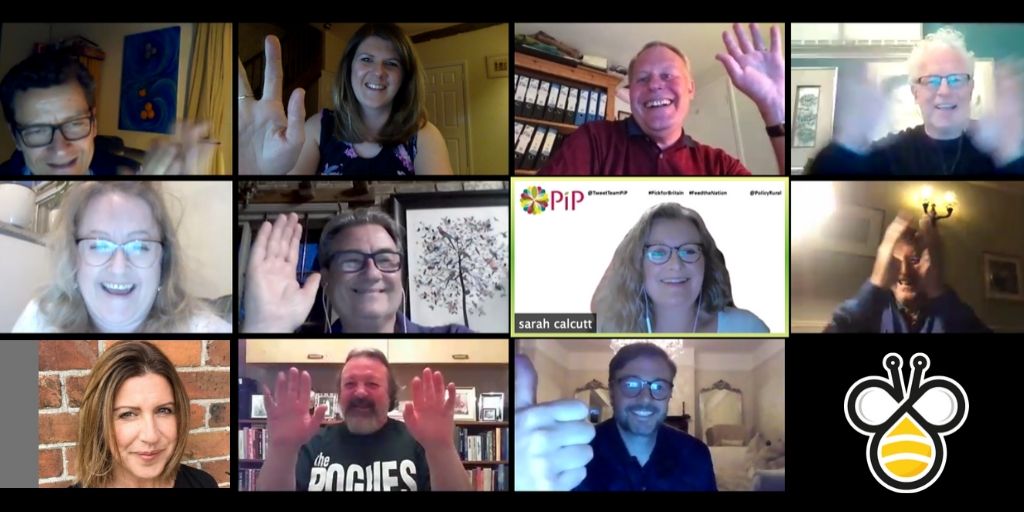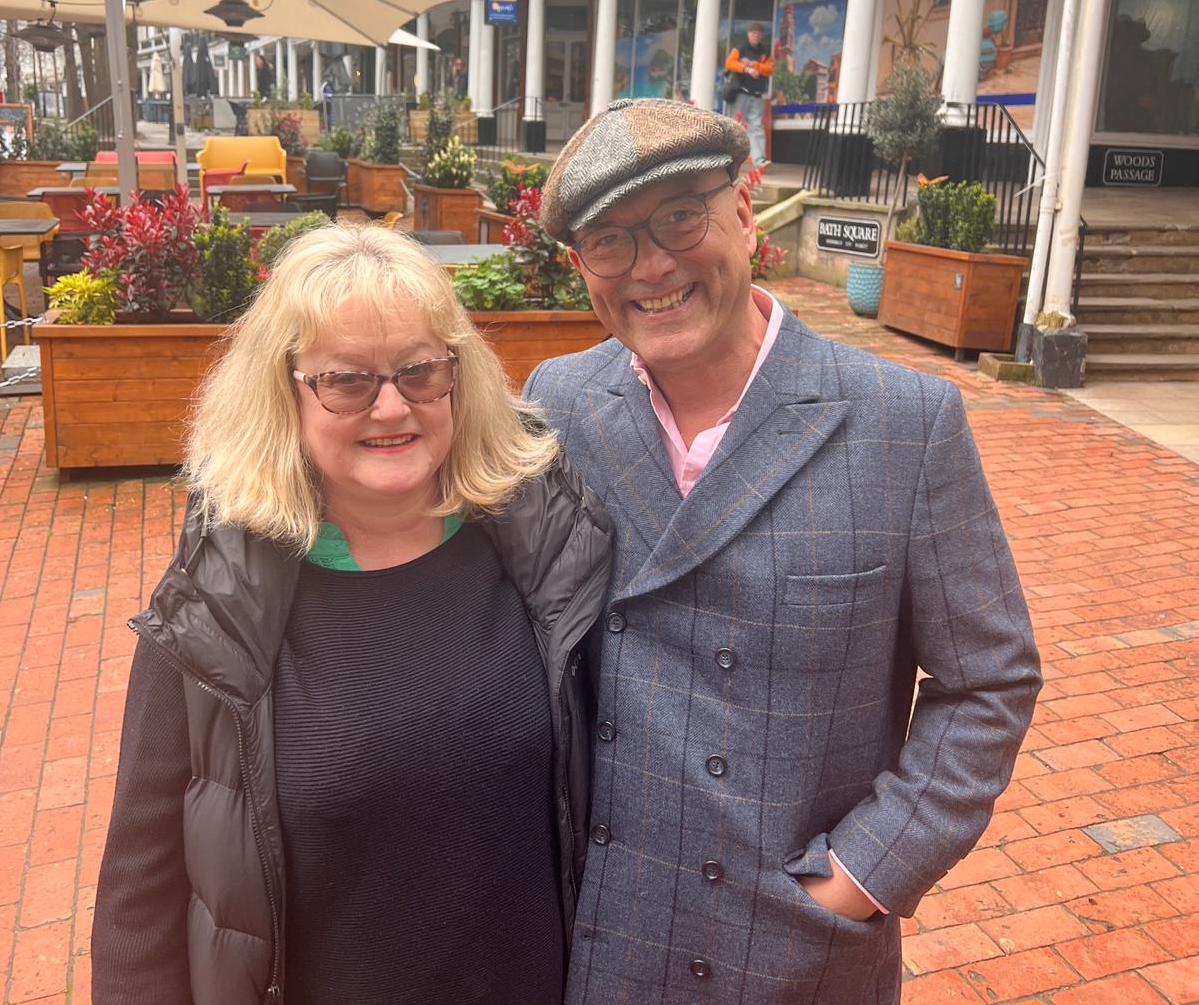Pledging mutual business support at the June Wealden Open Forum

Local business owners reconvened this month for the fourth Wealden Open Forum ahead of the Bank of England Business Insights Roundtable in October2020. In this session, host Philip Crocker posed five questions for discussion, among attendees Emma Wood, Robin Beck, Hazel Broadley, Stuart Smith, Nathan Blackmore, Steve Bergson, Susie Smith and John Mather.
- How was your business performing before Covid, what has happened during and how do you see your business in the future?
Steve and Hazel noted that despite projects being paused or coming to an end, they have actually been “doing” more work to meet increased client expectations during lockdown. This highlighted the dilemma of time spent IN versus ON the business. As businesses emerge from lockdown, they envisage taking more control by managing client expectations and being able to become more selective with client work, enabling them to resume with their plans for gradual expansion.
Robin, Stuart and Emma also noted a sudden gearchange from a high turnover in March to lockdown in April, which coincided with the beginnings of an inevitable recession following Brexit in January. However, all three were confident about the future of their business (despite the uncertainty as to the exact timeframe for easing of restrictions).
Nathan’s company recently had a Government loan application declined after a long, drawn-out process, by one of the main high-street banks, as it was deemed as not sufficiently in need, which will have a huge impact on the business, having recently recruited. (Update: The company has since secured the finance through Funding Circle, following a quick and easy application process.) It has been disappointing to witness banks declining bounce-back loans, despite being keen to offer standard fee-generating loans in their place. John concurred this was an increasing problem for SMEs in the “missing middle”.
Meanwhile, Susie is confident her business will continue to thrive as clients are increasingly moving online. What’s more, following a global advertising slump, brands are resuming their marketing spend. Stuart warned, however, that traditional media agencies are already losing out to the media/ecommerce giants (Facebook, Twitter, Amazon etc), with many forced to drop their rate card by 80%. Meanwhile, TV/radio advertising is rising, while online, decreased CPMs (costs per thousand impressions) are providing clients a lot more exposure for their money.
- Do you feel sufficiently empowered to introduce change in your business, and if not, what are you missing?
Steve and Hazel felt it may take a few months to regain full control over expansion plans, as businesses re-emerge from lockdown. They are currently missing capacity to grow (as they focus instead on meeting client expectations, but also coping with various technological/connectivity issues hampering their efficiency); integration (of disparate software, to provide a holistic overview of the project workload); and upskilling opportunities for colleagues, but also for clients (i.e. the ability to shift expectations by demonstrating the true value of their offering).
Susie and John felt it was difficult not being able to meet new clients face-to-face, which is often the best way of a) explaining the bespoke service they offer, b) conveying the confidence and high-quality with which they deliver that service, and c) working closely alongside business teams to achieve the best results. The lack of face-to-face meetings is hindering their ability to stand out as an SME, in a remote world where clients are likely to opt for larger, better-known entities. Philip suggested there may be some way the Bank of England could provide assurances of SMEs delivering the product or service they say they will.
Susie and Stuart emphasised the importance of driving change among Government and tourist boards, where all-too often, use of a particular company has been predetermined before going through the motion of putting the project out to tender. This leaves SMEs disheartened and unwilling to invest the effort of going through the pitch process, thus detracting further from healthy competition across the market.
Robin, Stuart and Emma noted that despite attempts to ramp up late payment legislation in the past, any attempt among SMEs to implement their policies is futile, as larger companies know the value of their contracts outweighs any proposed penalties for late payments, thus taking advantage of the vulnerability of SMEs. Much more support is needed from the Government and financial institutions to protect SMEs from this reality.
- Do you need access to specific resources and support and if so, what are they?
Rather than financial support, Steve and Hazel are in need of more centralised project management software to facilitate more distributed working; as well as business support in the form of one-to-one mentoring or group mentoring opportunities. Being self-employed, they are noticeably missing those “chat by the water cooler” moments where they can bounce ideas off other colleagues. The rest of the forum agreed that giving and/or receiving some form of mentoring resource would benefit their business, and in turn, the wider community.
- What type of business community would you like to see in the future, in Cranbrook and the surrounding villages?
For most of the forum, having a vibrant and more diverse selection of businesses in the future is important, with everyone welcoming a mixture of retail and office-based businesses to keep the town alive. John observed that with a potential mass exodus from UK cities, more and more individuals will be living and working in rural Kent. Everyone agreed this shift will increase demand for both retail and commercial space across the Weald. Alongside more standard networking sessions, having an evolving coworking environment within the local community would naturally support mentoring and growth coaching opportunities, as well.
- How do you believe we can work together to revive and thrive?
The forum agreed they should consider ways of helping support each other ON their business rather than being stuck IN their business. This could include setting up a local business support group, such as an informal business growth clinic or accelerator scheme, with bookable one-to-one slots as well as group meetings and socials. No committee; minimal paperwork; simply face-to-face support and collaboration.
The Hive and Darwin Whitty look forward to joining more local businesses and community organisations – as well as parish and borough councillors – for the last Wealden Open Forum on Thursday 2nd July 2020. Bringing everyone together in this way will provide a more cohesive conversation around local business issues, as well as economic development and funding issues among local councils.
Email connect@hivehubs.buzz or call 01580 715722 today to book your place and help shape the future of the local business community.





